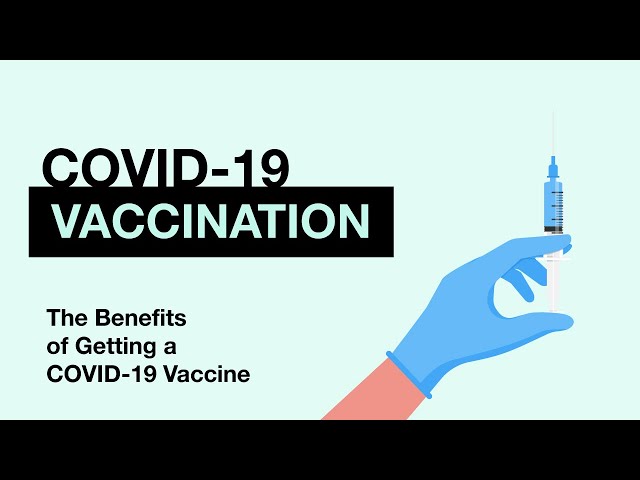Benefits of Vaccines
Vaccines play a crucial role in safeguarding public health by preventing the spread of infectious diseases. In this article, we will explore the numerous benefits of vaccines and their significance in maintaining a healthy population.
Disease Prevention
Vaccines are highly effective in preventing the occurrence and transmission of various diseases. By stimulating the immune system, vaccines enable the body to recognize and fight specific pathogens. This helps to prevent the onset of diseases such as measles, mumps, rubella, polio, influenza, and many others.
Eradication of Deadly Diseases
Vaccines have played a pivotal role in eradicating deadly diseases from the face of the Earth. For instance, smallpox, a highly contagious and fatal disease, was successfully eradicated worldwide through a comprehensive vaccination campaign. This achievement demonstrates the power of vaccines in eliminating life-threatening diseases.
Herd Immunity
Vaccines not only protect individuals but also contribute to the concept of herd immunity. When a significant portion of the population is immunized against a disease, the spread of that disease is significantly reduced. This indirectly protects vulnerable individuals who cannot receive vaccines due to medical reasons or age, such as infants and individuals with compromised immune systems.
Reduced Disease Severity
Even if vaccinated individuals contract a disease, the severity of the illness is often significantly reduced. Vaccines train the immune system to respond quickly and effectively, minimizing the risk of severe complications or death. For instance, the flu vaccine can reduce the severity of symptoms and prevent hospitalizations among those who still contract the virus.
Cost-Effective
Vaccinations are a cost-effective public health intervention. The expenses associated with treating vaccine-preventable diseases, including hospitalizations, medications, and long-term care, are significantly higher than the cost of immunization. By investing in vaccines, societies can save substantial healthcare costs and allocate resources to other important areas of healthcare.
Global Health Impact
Vaccines have a profound impact on global health. They have successfully controlled and eliminated diseases that once caused immense suffering and death. Through vaccination campaigns, organizations like the World Health Organization (WHO) and UNICEF have made significant strides in reducing the burden of preventable diseases in developing countries, improving the overall quality of life.
Safe and Well-Regulated
Vaccines undergo rigorous testing and evaluation to ensure their safety and efficacy. Regulatory bodies, such as the Food and Drug Administration (FDA) in the United States, closely monitor the development, production, and distribution of vaccines. The safety of vaccines is continuously monitored even after their introduction to the market, ensuring public confidence in their use.
Research and Innovation
The field of vaccines constantly evolves, with ongoing research and innovation leading to the development of new and improved vaccines. Scientists and healthcare professionals work tirelessly to enhance vaccine effectiveness, reduce side effects, and expand the range of diseases that can be prevented through vaccination. This commitment to research and innovation ensures that vaccines remain a vital tool in public health.

Vaccines offer a multitude of benefits, ranging from disease prevention and eradication to global health impact and cost-effectiveness. By understanding and embracing the importance of vaccines, individuals and communities can contribute to a healthier and safer world. Vaccination is a powerful tool that saves lives, protects vulnerable populations, and paves the way for a brighter future.
Frequently Asked Questions
1. Are vaccines effective?
Yes, vaccines are highly effective in preventing diseases and reducing the severity of illness.
2. How do vaccines work?
Vaccines stimulate the immune system to recognize and fight specific pathogens, providing immunity against diseases.
3. Are vaccines safe?
Yes, vaccines are rigorously tested for safety before they are approved for use. The benefits of vaccination far outweigh the risks.
4. Can vaccines cause autism?
No, scientific studies have shown no link between vaccines and autism. Vaccines are safe and do not cause developmental disorders.
5. Do vaccines have long-term side effects?
Most vaccine side effects are mild and temporary. Serious long-term side effects are extremely rare.
6. Can vaccines prevent outbreaks?
Yes, vaccines play a crucial role in preventing outbreaks by reducing the spread of infectious diseases within communities.
7. Do vaccines only benefit individuals who receive them?
No, vaccines also provide community protection through herd immunity. By vaccinating a significant portion of the population, the spread of diseases is limited, protecting vulnerable individuals.
8. Are vaccines necessary if diseases are rare?
Yes, even if a disease is rare, it is important to maintain vaccination rates to prevent its resurgence and protect those who are unable to receive vaccines.
9. Can vaccines be given during pregnancy?
Some vaccines are safe and recommended during pregnancy to protect both the mother and the unborn child from certain diseases.
10. Are vaccines only for children?
No, vaccines are important for people of all ages. Vaccination schedules include vaccines for infants, children, adolescents, and adults to ensure lifelong protection.




